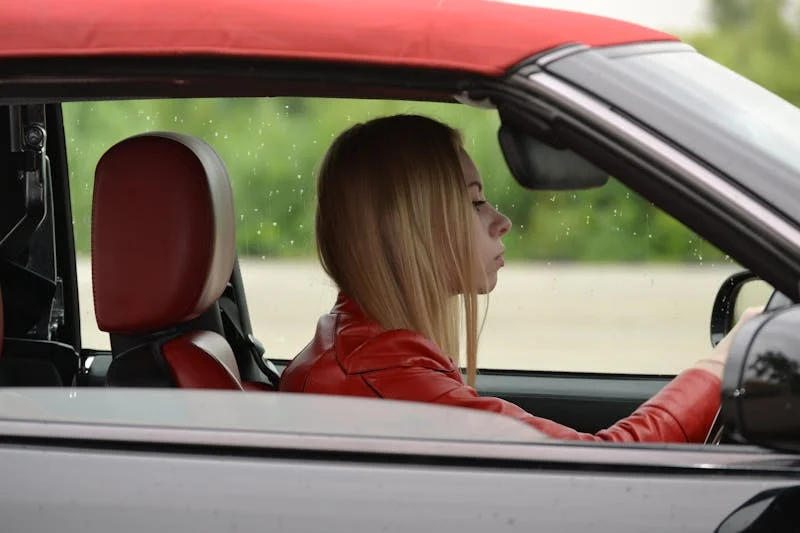Can someone else drive my car that is not on my insurance?
As a car owner, I have often been asked by friends and family if they could borrow my car for a quick errand or a road trip.
While it’s tempting to help out a loved one in need, I always find myself hesitating.
Can someone else drive my car that is not on my insurance?
What are the risks and consequences if I let someone else drive my car without adding them to my insurance policy?
In this comprehensive guide, we will explore the potential risks and consequences of allowing someone not on your insurance to drive your car.
Understanding Insurance Coverage
Before we dive into the risks and consequences, let’s first understand the basics of insurance coverage.
When you purchase an auto insurance policy, you are essentially buying protection for yourself and your vehicle in the event of an accident.
Your insurance policy will outline who is covered to drive your car.
This typically includes yourself, your spouse, and other family members living in the same household.
Who is Covered Under My Insurance Policy?
Most insurance policies cover the following individuals:
- You, the primary policyholder
- Your spouse or domestic partner
- Other family members living in the same household
Can Someone Else Drive My Car That Is Not On My Insurance?
In general, if someone not listed on your insurance policy drives your car occasionally, they may be covered under your insurance.
However, this coverage is usually limited to permissive use, meaning that the person has your permission to drive the car.
But what happens if someone drives your car without your permission or on a regular basis? Let’s explore the potential risks and consequences.
Common Scenarios
There are several common scenarios where you may find yourself questioning whether to let someone else drive your car:
- Loaner Car: A friend needs to borrow your car for a few hours while theirs is in the shop.
- Family Member: Your cousin from out of town wants to use your car for the duration of their visit.
- Road Trip: A co-worker asks to take your car on a weekend road trip. Each of these scenarios presents its own set of risks and consequences that you should be aware of.
Risks of Allowing Someone Else to Drive Your Car
While it may seem like a simple favor to let someone borrow your car, there are several risks involved in allowing someone not on your insurance to drive your vehicle. Let’s take a closer look at these risks:
Limited Coverage
If someone not on your insurance gets into an accident while driving your car, your insurance coverage may be limited.
Your insurance policy is primarily meant to cover you and the individuals listed on the policy.
While some policies extend coverage to occasional drivers, this coverage is often restricted and may not be sufficient to cover all damages in the event of a claim.
High Deductibles
In the unfortunate event of an accident, you may be responsible for paying the deductible on your insurance policy.
If someone not on your insurance is at fault for the accident, you could end up having to pay a significant amount out of pocket before your insurance kicks in.
This can lead to financial strain and increased premiums in the future.
Uninsured Motorist Protection
If the person driving your car is at fault for an accident and does not have their own insurance policy, you could be left unprotected.
Without uninsured motorist protection, you may be liable for covering the costs of damages and injuries out of your own pocket.

Legal Consequences
Allowing someone not on your insurance to drive your car could have legal ramifications.
In some states, you may be held liable for any damages or injuries caused by the driver of your vehicle.
Even if you were not present at the time of the accident.
This could result in legal fees, fines, and even a lawsuit against you.
Voided Warranty
If you have a warranty on your vehicle, allowing someone not on your insurance to drive your car could potentially void the warranty.
Many warranties have clauses that require the primary driver to be the owner or a listed driver on the insurance policy.
Allowing an unauthorized driver to use your car could lead to denial of coverage in the event of a mechanical issue.
Changes in Insurance Premiums
If someone not on your insurance gets into an accident while driving your car, your insurance premiums could increase.
Insurance companies base their rates on the level of risk associated with insuring a particular driver.
If an unauthorized driver is involved in an accident with your car, the insurance company may view you as a higher risk, leading to higher premiums.
Consequences of Allowing Someone Else to Drive Your Car
In addition to the risks mentioned above, there are a number of potential consequences that could arise from allowing someone not on your insurance to drive your car.
Let’s explore these consequences in detail:
Denied Claims
If someone not on your insurance gets into an accident while driving your car, your insurance company may deny your claim.
Insurance policies have specific guidelines regarding who is covered to drive your vehicle.
If the driver is not authorized under your policy and gets into an accident, your claim may be denied, leaving you to cover the costs on your own.
Policy Cancellation
Allowing unauthorized drivers to use your car could result in your insurance policy being canceled.
Insurance companies expect policyholders to be truthful and upfront about who will be driving the insured vehicle.
If you are found to be regularly letting unauthorized drivers use your car, the insurance company may decide to cancel your policy.
Legal Penalties
In some states, allowing someone not on your insurance to drive your car could lead to legal penalties.
If the unauthorized driver gets into an accident and causes damage or injury, you may be held liable for any resulting legal consequences.
This could include fines, license suspension, and even jail time in extreme cases.
Difficulty Obtaining Future Coverage
If your insurance policy is canceled due to allowing unauthorized drivers, you may have difficulty obtaining coverage in the future.
Insurance companies may view you as a high-risk driver and be hesitant to insure you.
This could result in higher premiums or even being denied coverage altogether.
Increased Liability
When you allow someone not on your insurance to drive your car, you are taking on additional liability.
If the driver gets into an accident and causes damage or injury, you may be held responsible for covering the costs.
This could result in financial strain and impact your ability to afford future insurance coverage.

Impact on Claims History
If someone not on your insurance gets into an accident while driving your car, it could impact your claims history.
Insurance companies use claims history to determine premium rates and eligibility for coverage.
If you have multiple claims filed as a result of unauthorized drivers, it could make it harder and more expensive to get insurance in the future.
FAQs
1. Can my friend drive my car if they have their own insurance?
Yes, your friend can usually drive your car if they have their own insurance.
In most cases, their insurance policy will provide coverage while driving your vehicle.
However, it’s always best to check with your insurance company to confirm coverage.
2. Do I have to add my spouse to my insurance policy?
It is typically recommended to add your spouse to your insurance policy to ensure they are properly covered in the event of an accident.
Most insurance companies require you to list all household members who have access to your vehicle.
3. What happens if someone not on my insurance gets a ticket while driving my car?
If someone not on your insurance receives a traffic ticket while driving your car, you are usually responsible for handling the ticket.
The ticket will be issued to the registered owner of the vehicle, which is typically you as the primary policyholder.
4. Can I add someone to my insurance policy temporarily?
Some insurance companies allow you to add temporary drivers to your policy for a specified period.
This can be useful if you have a houseguest or family member visiting who needs to drive your car.
Check with your insurance provider for specific details.
5. Will my insurance cover a rental car if someone else is driving?
If you have rental car coverage on your insurance policy, it may cover a rental car if someone else is driving.
However, coverage can vary depending on the provider.
It’s best to check your policy or contact your insurance company for clarification.
6. What should I do if someone not on my insurance gets into an accident with my car?
If someone not on your insurance gets into an accident while driving your car, you should contact your insurance company immediately.
They will guide you through the claims process and help determine coverage for the damages.
Conclusion
In conclusion, the decision to allow someone else to drive your car that is not on your insurance is not one to be taken lightly.
While it may seem like a small favor, the risks and consequences of letting unauthorized drivers use your vehicle can have long-lasting effects on your finances and insurance coverage.
It’s always best to check with your insurance provider and ensure that all drivers of your vehicle are properly covered under your policy.
Remember, when in doubt, it’s okay to say no to lending out your car. Your peace of mind and financial security are well worth it. Stay safe on the road!

